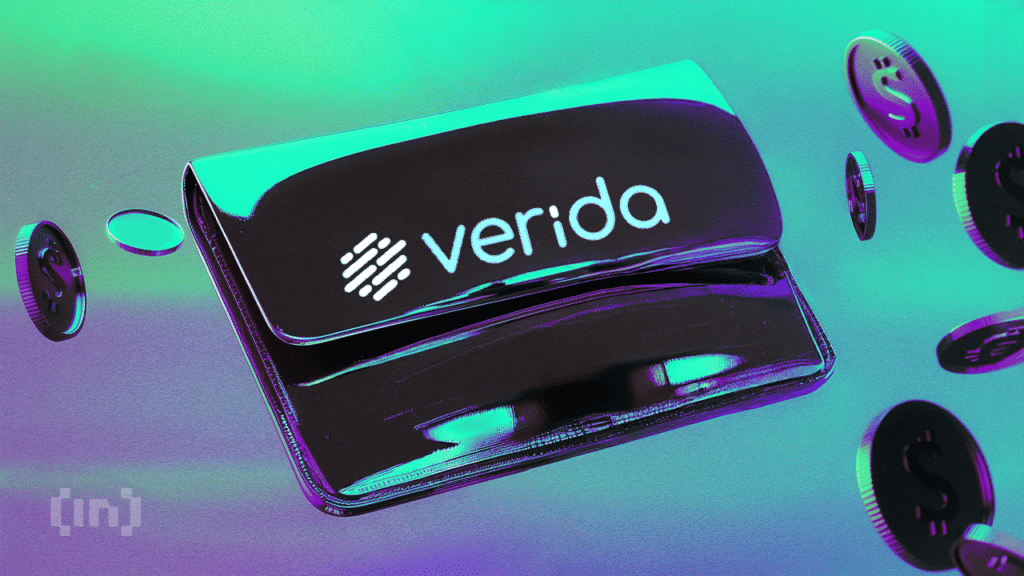Data management with DePIN technology

Data governance is of utmost importance in today's data-driven world where security, transparency and efficiency are key. In industries as diverse as consumer insurance, media, advertising, and healthcare, challenges exist to effectively manage large amounts of sensitive data while ensuring privacy and compliance.
Handling data from different sectors is exactly what Verida Network is trying to solve. Unlike traditional systems, the Verida network provides a decentralized infrastructure that ensures user data is private, secure and only accessible with permission.
This gives Verida access to enormous opportunities valued at trillions of dollars. You can find the vast consumer insurance market valued at over $6 trillion, the lucrative media and advertising sector at $1.5 trillion, and the thriving health and pharmaceutical industry at $1 trillion.
However, using this potential will require overcoming significant hurdles to transition from Web2 to Web3 technologies. Verida Network is committed to providing the necessary infrastructure needed to address these challenges.
Current challenges in Web 3 adoption
Web3 technology is still in its infancy, and still has difficulty competing with Web2 alternatives due to its inefficiency in developing feature-rich and robust applications. While blockchain offers the Interplanetary File System (IPFS), there is still a need for a new type of decentralized data storage infrastructure.
This new decentralized data storage infrastructure must be able to support identity, authentication, messaging and personal data storage.
Additionally, users and developers are already accustomed to the high performance, availability, and security Web2 offers. Therefore, the Web3 sector needs a better technology stack that provides more than this, and decentralized storage networks such as Filecoin (based on IPFS), Sia, and Arweave cannot provide this.
Verida Network provides private encrypted databases and gives users control over where and how their data is stored. Additionally, it supports real-time synchronization, authorization data access, and client-side encryption. Further, such an ecosystem provides all the features required for the Web3 sector to outperform the Web2 competition.

Verida is a decentralized solution for personal user databases.
The Verida Network is a complex dApps that combines user-controlled keys with the performance and privacy of traditional databases in a Layer Zero Decentralized Public Infrastructure (DePIN). It is DePIN, not a blockchain network, that provides privacy-preserving database storage for sovereign identities.
In other words, Verida Network was created to give users control over their data and how they interact with the digital world.
Chris Weir, CEO and founder of Verida, explained this vision:
“For years, the crypto world has been fixated on fast blockchains as the solution for mass adoption. In fact, being able to control personal data and combine it with crypto is the real secret.”

To achieve this, the Verida network uses several tools. First, they provide software SDKs for developers to integrate with their applications to take advantage of the technical capabilities of the Verida protocol. In addition, Verida provides open source server nodes to any member of the public to provide storage capacity to the network and access VDA tokens.
Innovative features of Verida Wallet

Verida Wallet is one of the most strategic products of this project, and it works as a data wallet and a crypto wallet at the same time. It has a very innovative and user-friendly interface, which allows users to seamlessly connect with the Verida protocol and other blockchains. The Verida Wallet comes with many capabilities that make it the most revolutionary in the crypto sector.
Single sign-on: The single sign-on feature on Verida Wallet allows users to log into multiple applications and websites with a single set of credentials. Therefore, you can interact with decentralized applications on the Verida network using consensus authentication. Identity: One of the main functions of Verida Wallet is that it provides a way to create decentralized identities in blockchain wallets and manage their private keys across different dApps. Data Sharing: With this wallet, users can browse their data and share it with consent. Moreover, Verida Wallet allows receiving, storing and sharing W3C verified credentials. Additionally, users do not need to expose their personal information due to the integration of Zero Knowledge (ZK) credentials. Profiles and Inbox: This wallet also displays inbox and profiles. Provides private and public profiles that can be shared with third parties. Additionally, there is an inbox feature that allows users to receive messages and requests. Tokens and Transactions: In addition to maintaining a data wallet, Verida Wallet allows users to sign transactions, transfer assets and manage NFTs while simultaneously earning Verida tokens.
Verida SDKs for improved development

The Verida SDK allows end-to-end encryption of user data with a private key on the user's endpoint, preventing access from storage node operators and application developers. Verida's software development tools are mainly divided into SDKs for developers and customers.
SDKs for developers help them create self-sovereign applications that use the Verida network to access smart contracts on supported blockchains. Additionally, they also have client SDKs that allow developers to build applications that access encrypted private storage, identity, and messaging capabilities. The client SDK is an easy-to-use library that provides support for web browsers, React Native, and NodeJS applications.
Verida Token (VDA): The lifeblood of the ecosystem
Verida Token (VDA) primarily facilitates payments, management, transactions and data storage on the platform. It plays a vital role in creating an environment that allows secure interactions between accounts. In other words, the Verida Token facilitates secure data storage and trusted sharing between users.
The Verida Token has a stakeholder economy, and this includes:
End Users: End users pay application and storage subscription fees on Verida's network. Apps: dApps on the Verida network earn revenue from subscription fees. They can also generate valuable data and even help pay users' storage fees. Storage node operators on the Verida network can also carry the VDA token to earn revenue.

According to their white paper, the name of the main token is Verida Utility Token (VDA) and it has a fixed supply of 1,000,000,000. The token distribution is very fair. Verida's Growth Rewards will take 20% of 200 million tokens. Verida DAO and Project Development will each take the same 20% for a total of 400 million.
This is followed by Community Reserve which takes 15.4% share and 15.1% of support providers. The rest of the distribution consists of token launch, which takes 6%, and storage credits, which take 3.5% of the allocation.
Different use cases for Verida Network
The Verida Network has some great and amazing applications and use cases, which we'll discuss below
Management of certificates
One of the main applications of the Verida protocol is in authentication. It builds a mobile infrastructure that supports the latest and newest identity and authentication standards. Moreover, it provides a data storage infrastructure that facilitates easy recovery and backup of these critical credentials.
Balancing AI creativity and privacy
One of the highlights of AI development is the balance between the value of data for AI innovation and the individual's fundamental right to privacy. Therefore, the Verida Network develops a balance between the prosperity of AI and the respect for data privacy, developing a vision of opportunities and a future.
Improving health care information security
By 2023 alone, more than 130 million health records will be compromised in the healthcare sector. This highlights the importance of secure, reliable and scalable data management solutions in healthcare. Enter the Verida Network, which enables the cross-border flow of health information without compromising patient privacy. In Uzbekistan, Verida Network has a real-time app that helps protect healthcare data.
Personalized user experiences
One of the growing trends among consumers is the ever-burning desire to receive customized experiences when accessing a product or service. Verida Network creates developer tools and wallet interfaces, allowing users to embrace unique experiences while protecting their data and privacy.
Chris Were said:
“International business is driven by personal information. Product recommendations on Amazon from past purchase history, ads based on search history, insurance based on where you live, the list goes on. Linking payments to personal data will revolutionize crypto and enable a wave of innovation comparable to what we saw with the advent of the Internet.

Verida's ecosystem of partners
Kima Finance, Primacy, inDAO, WalletConnect, Veramo, Ten, Polygon ID, Synapse, zkpass, and Nillion are among Verida's growing ecosystem of partners. What's more, NearProtocol and Gate.io are among the partners of a crypto exchange with a daily trading volume of more than $3 billion.
In addition to their strategic partnership, Verida Network is gaining significant online traction. It has over 87,000 community members on Twitter and nearly 40,000 members on Discord. Moreover, it has more than 30 storage nodes and 50,000 IDs globally.
Links:
Website | Twitter | Disagreement | Telegram
Frequently asked questions
Disclaimer
This article is sponsored content and does not represent the views or opinions of BeInCrypto. While we adhere to The Integrity Project's guidelines for impartial and transparent reporting, this content was created by a third party and is intended for promotional purposes. Readers are advised to independently verify information and consult with experts before making decisions based on this sponsored content. Please note that our terms and conditions, privacy policy and disclaimer have been updated.













